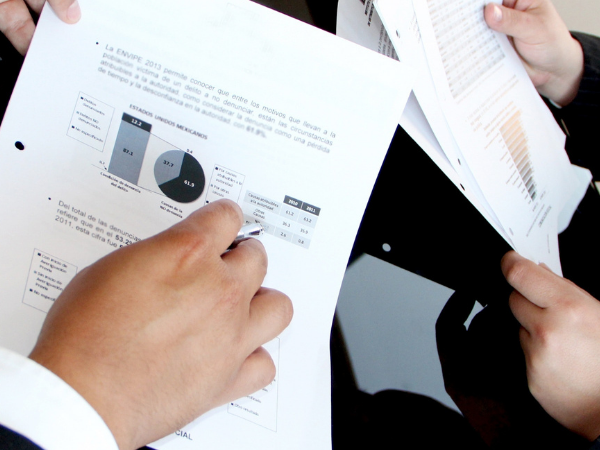What is a corporate debt?
You may not know what corporate debt is, but it might affect all of us pretty soon. The coronavirus pandemic seems to be going away, but it left the world with many problems. Specifically, it caused such a massive economic downturn that the corporate debt bubble may pop soon. We have to prepare for the many challenges it will bring.
Before we get into the corporate debt bubble, we’ll discuss what corporate debts are. We’ll explain why businesses borrow funds and how it affects the economy. Then, we’ll discuss how it has grown into a debt bubble and how the coronavirus might finally pop it. The Federal Reserve borrowed time to keep it steady, but we may soon pay for it in many ways.
We all stayed indoors to protect ourselves against the coronavirus. While it may have defended public health, it harmed economic activity around the world. Businesses aren’t making much money, so they can’t repay their corporate bonds. The results will shake the world, not just for companies but for regular folks like you.
Want to Get Out of Debt? Click Here!
Why do businesses go into debt?
Companies may borrow funds just like regular people. In a nutshell, that’s what corporate debts are. They might need money now for a short-term need. Then they repay in the long-term.
Maybe it’s a startup that needs new equipment to operate. They could get small business loans to cover those. They later earn enough to pay the loans back.
Related Articles
Best Way to Pay Off Debt
12 Ways on How to Promote Your Business
Biden’s Plan for Student Loans
Similar to individuals, they request funds from banks and other financial institutions. As you’d expect, they also need to submit principal and interest payments.
Bank loans have limits, though. If a business needs more, it may issue corporate bonds. An investor could buy some, so the company gets funds. After some time, the investor gets paid.
Want to Get Out of Debt? Click Here!
The corporate debt market for businesses
Ask an economist, and they may tell a lot about what corporate debts are. They serve businesses in a variety of ways, such as:
- They need to pay for short-term expenses
- It gives them more options than most financial institutions.
- Corporate debt could fund a business project and increase its earnings.
- It could serve as leverage by protecting against potential losses.
Corporate bonds are included in one of the leading asset classes. Investors add each type to their portfolios to increase earnings and decrease risks.
- Stock or Private Equity
- Fixed-income
- Bonds
- Mortgages
- Certificates of deposit
- Cash & Cash Equivalents
- Alternative investments
- Properties
- Commodities
- Currencies
- Venture capital
- Hedge funds
Related Article: Everything You Need to Know About Credit Card Limits
The corporate debt market for investors
Investors have a similar view of what corporate debts are. Most bonds are low-risk investments with low yields.
If they bought those from a company, they have primary market bonds. If they purchased existing debts, those are secondary market bonds.
Similar to regular debts, companies don’t just pay the original amount or the principal. They submit interest payments which investors receive as coupon payments.
Investors hold bond ownership until its maturity date. Once that happens, they get back the original amount they gave to a company.
Stocks are just like what these corporate debts are. Investors could sell them before maturity for their par value. Or they could sell at maturity for its market value.
There are corporate bond markets around the world. You may invest in corporate bonds if you like. That might not be a good idea right now, though.
Want to Get Out of Debt? Click Here!
Types of corporate bonds
Just like credit card debt, credit rating agencies decide what corporate obligations are good or bad. There’s also three of them: S&P 500, Fitch, and Moody’s.
The safest ones are called investment-grade bonds. They have low risk but low interest rates. Investment-grade corporate bonds earn high grades like AAA, AA, and A.
Those below BBB are non-investment grade debts or high-yield bonds. Investors may earn more from the higher interest rates. But they’re also called junk bonds due to the increased risk.
Credit risks are also part of what corporate bonds are. This is why these agencies keep an eye on their credit quality.
In February, the Financial Times reported that the riskiest borrowers have the largest share of junk bonds since 2007. Later, we’ll tell how this would affect us after COVID.
Related Article: Best Cryptocurrency to Buy in 2021
What happens if firms can’t repay?
A company might not earn enough to pay back bonds. Worse, they may close down. Individual companies have to repay in other ways depending on the kind of bonds they issued.
If corporate borrowers gave out secured bonds, they promised collateral for security. In case of the issuer defaults, the bondholders get its equipment or other assets.
On the other hand, unsecured bonds don’t promise a particular asset. Instead, investors could claim a portion of the company’s general cash flows and assets.
COVID-19 may pop the corporate debt bubble
After discussing what corporate debt is, let’s talk about what it could be. The corporate debt bubble will soon burst, and the coronavirus pandemic may finally stick the pin.
In 2019, the IMF warned that corporate debt levels are becoming dangerous. Central banks around the globe cut interest rates. It said that 40% of the debt could bring a financial crisis.
Also, the Financial Times said in December last year that corporate debt sales will decrease in 2021. Because of the pandemic, corporate debts finally reached an all-time high.
In response, the United States Federal Reserve bought corporate debts. The Fed may have only borrowed time, though. It admitted that it wasn’t sure of its long-term effects.
Related Article: Best Way to Write Effective Press Releases
Effects of the corporate debt bubble burst
Most of us don’t own companies, so you might be wondering what it has to do with you. After all, this talk of GDP and corporate debt doesn’t affect us, right?
Well, let us explain. We put lockdowns in place to protect against COVID-19. This caused a massive shift in the economy. Companies got a big problem when everyone just stayed home.
The big ones could continue running with remote work. For the smaller guys, they relied on people going out to buy stuff. Now that they can’t, a lot of them had to shut their doors.
With no money coming their way, they can’t pay corporate bonds. Many had to lay off workers to repay those debts.
The Women’s International League for Peace and Freedom warned about this in April 2020. Here are the kinds of people who may lose their jobs:
- Migrant workers
- Service industry employees
- Middle-class and lower-class people
- Women
- People with “feminine” jobs (nurses, teachers, etc.)
Want to Get Out of Debt? Click Here!
Final Thoughts
The pandemic brought a lot of uncertainty for many of us. What is sure, though, is that borrowing costs us later. We’ve gotten too much corporate debt, and we may pay for it soon.
Worse, people in North America and Europe haven’t recovered from the 2008 Financial Crisis. Now, the corporate debt bubble is coming.
Still, good money habits could help during tough times. Even better, you could learn finance tips free on the internet.





